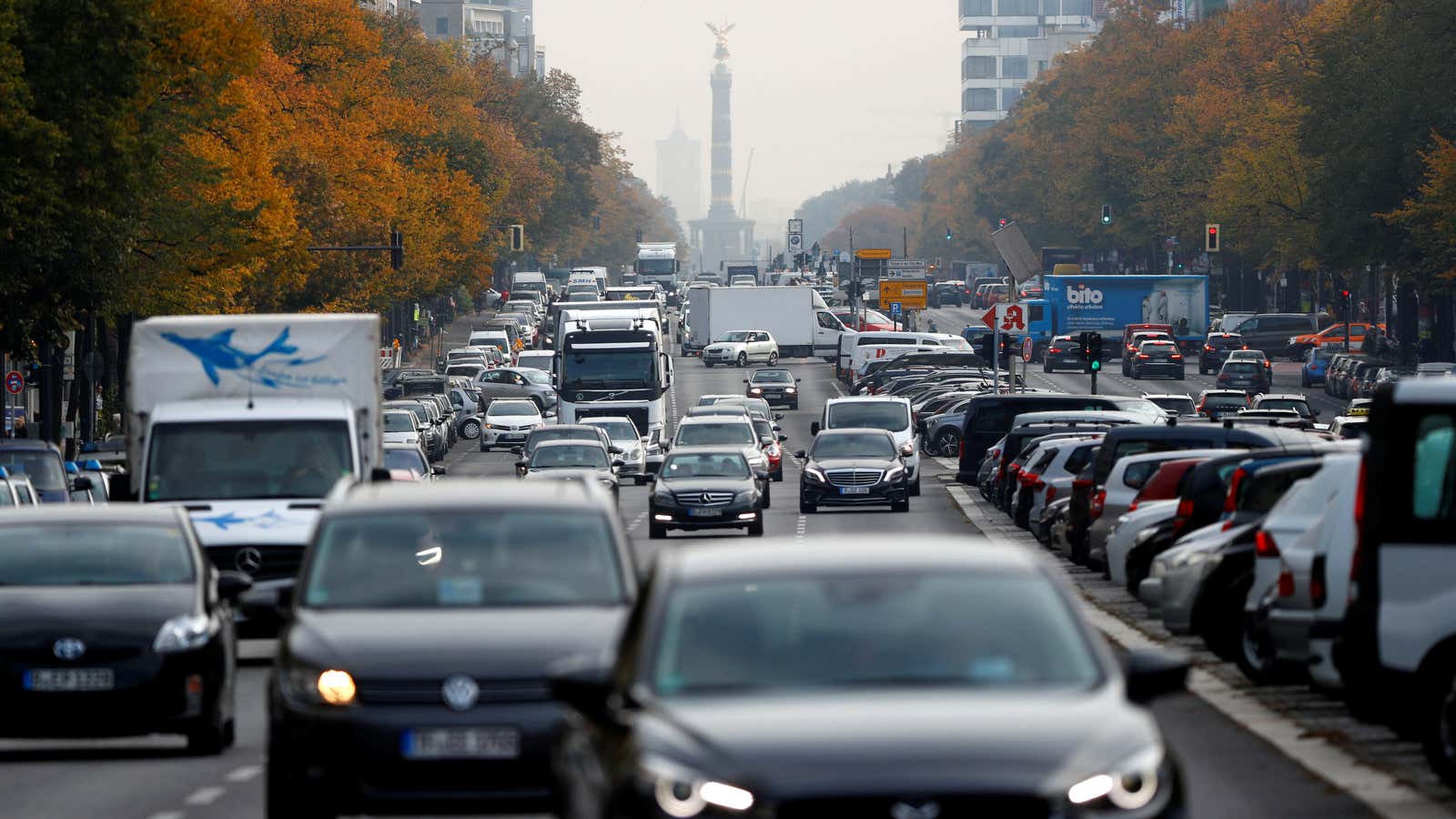German cities suffer from terrible air quality, partly as a result of the thousands of old, pollution-spilling diesel cars clogging up their streets. Despite this, government officials have been tying themselves in knots to avoid bans on diesel cars in the country’s most polluted cities, ostensibly to protect the country’s powerful car industry.
In February this year, a federal court gave the okay for German cities to decide if they wanted to ban diesel cars on their streets. So far, the ruling has only been taken up by the city of Hamburg—and only on small stretches of streets. Many cities, including the financial hub of Frankfurt, have resisted its implementation.
Still, environmental groups have persisted with their push for cleaner city streets. Today (Oct. 9) they successfully drove another nail into diesel’s coffin after a court ordered Berlin to start banning diesel cars manufactured before mid-2015 from using almost a dozen stretches of the capital’s key thoroughfares. Some 200,000 vehicles, including delivery vans and trucks, are likely to be impacted by the ban when it comes into effect next April.
The court was ruling on a lawsuit brought against the city government by the nonprofit Environmental Action Germany. Its CEO, Jürgen Resch, welcomed the decision, saying that chancellor Angela Merkel needs to go further and make it compulsory for older diesel cars to receive efficiency upgrades.
That’s easier said than done. Against the backdrop of the country’s “Dieselgate” scandal, the German government has struggled to deal with automakers who do not want to pay for expensive upgrades of older diesel cars that belch out high levels of nitrous oxide and exceed emission limits.
In the latest of several summits on this issue, the government announced last week that it would offer drivers incentives to trade in their old cars or get a hardware upgrade that would make the cars more efficient, known as retrofits. But they stopped short of ordering the car companies to pay for the retrofit program, only saying that they “expected” them to.
The trade-in plan is not great for drivers because they still face the cost of buying a new car, and the announcement drew ire from environmental NGOs. “The carmakers are trying to turn their cheating on emissions into a sales bonanza for new cars—a strategy that will continue to damage the climate and waste resources,” Greenpeace said.
Critics of driving bans argue that they may not do much to help the situation in the long term as they force drivers to take longer, more circuitous routes to get to their destinations—spreading their pollution in other places.
This debate might eventually become moot. Europe is falling out of love with diesel cars as governments phase out incentives to buy them and fears mount of an eventual all-out ban. “Consumers are saying, ‘Why should I buy a diesel car to find myself trapped three to four years down the road with something that is a big investment?'” Renault boss Carlos Ghosn told reporters (paywall) at the Paris Auto Show last week.
